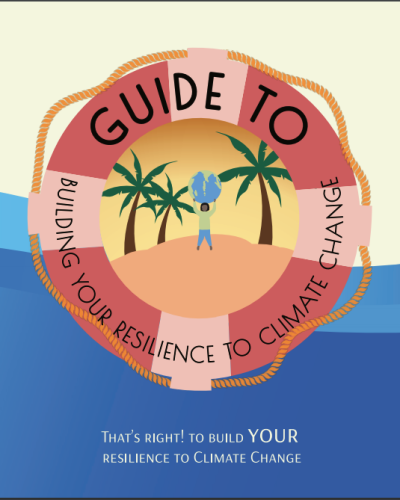Guide to Building your Resilience to Climate Change

While the Maldives has a sensitive environmental profile, most people, especially children and adolescents do not have a good understanding of climate change and its effects. A study on the effects of climate change on children in the Maldives (UNICEF, 2017), found that children associated the gradual increase in temperature and associated health issues to changes in the climate but required further engagement to build their knowledge on climate change and disaster risks associated. Some schools have environment clubs which allow students to engage in participatory-activities related to environmental protection such as island and beach clean-ups and recycling.
There are challenges in linking the effects of climate change such as increased coral bleaching events, extended dry period resulting in drinking water shortages, and continued rise in vector-borne diseases associated with the rainy season such as dengue epidemics (especially during flooding events). Hence, making it very important for adolescents and young people to improve their awareness on climate change, particularly in the context of the Maldives, get involved in protecting the environment, and addressing environmental issues that impact them and their communities and/or how to give adolescents a voice on climate change. With more young people getting engaged in environmental advocacy, due to the increase in infrastructure projects with potential impacts on the environment, participation of young people in the national development agenda armed with the right knowledge is paramount to influence positive change in their societies and the country.




